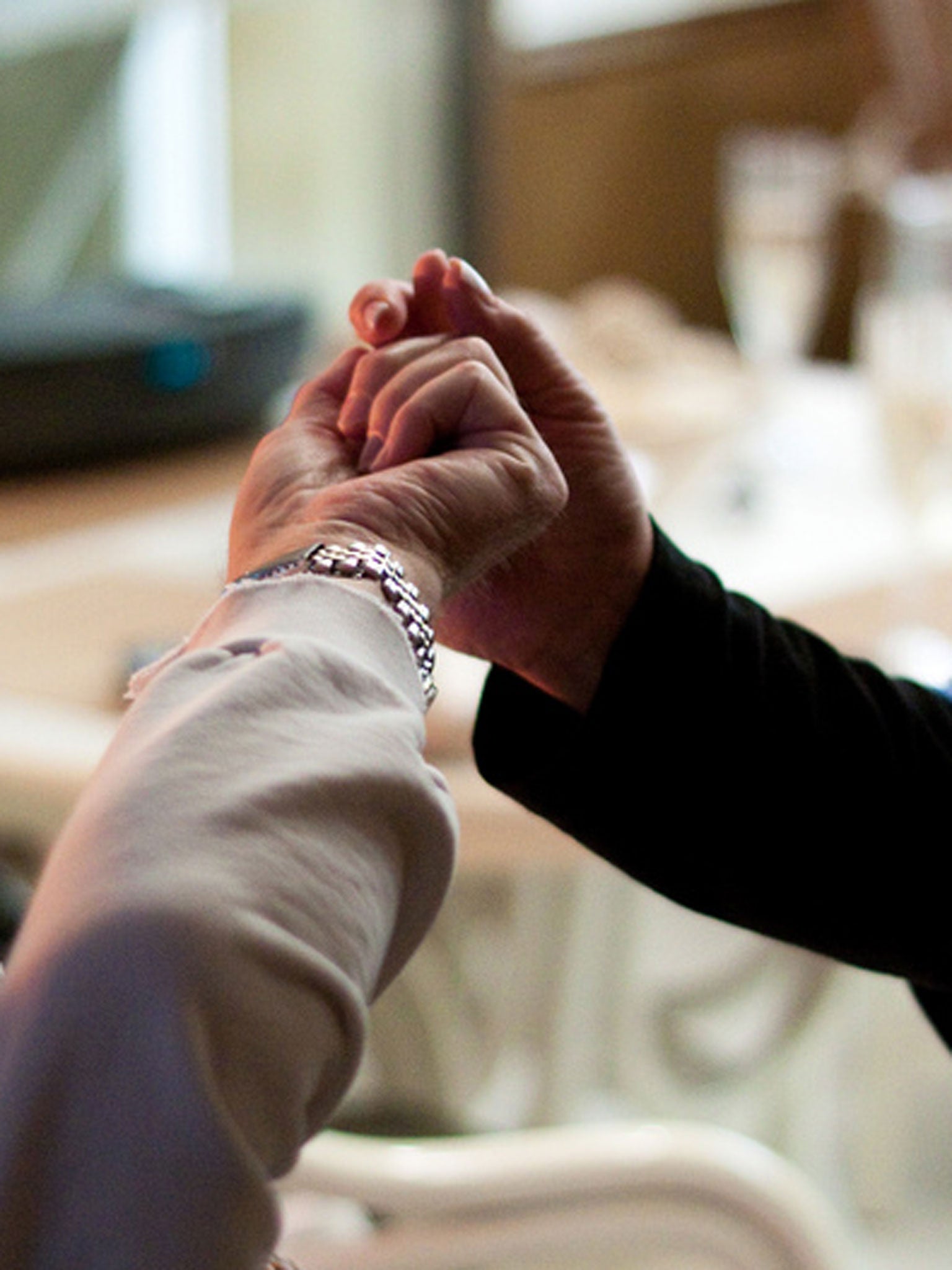It is possible to die of a broken heart, say scientists
The grief of losing a loved one doubles the risk of a heart attack, according to a British-based study

Your support helps us to tell the story
This election is still a dead heat, according to most polls. In a fight with such wafer-thin margins, we need reporters on the ground talking to the people Trump and Harris are courting. Your support allows us to keep sending journalists to the story.
The Independent is trusted by 27 million Americans from across the entire political spectrum every month. Unlike many other quality news outlets, we choose not to lock you out of our reporting and analysis with paywalls. But quality journalism must still be paid for.
Help us keep bring these critical stories to light. Your support makes all the difference.
From Shakespeare to Twilight, the devastating effects of a broken heart pervade popular culture – and scientists have said that you really can die from the trauma of losing a loved one.
Grief doubles the risk of suffering a heart attack, and has the same effect on the chances of suffering a stroke, a study has found.
Scientists at St George's, University of London, looked at GP data on thousands of individuals aged 60 and over in the UK, some of whom had recently lost partners.
They found that 16 per 10, 000 patients suffered a heart attack or stroke within 30 days of a partner's death - double the rate for those whose loved ones remained alive.
The heightened risk among bereaved men and women starts to fall after 30 days, according to findings published in the journal JAMA Internal Medicine.
Lead researcher Dr Sunil Shah said: "We often use the term a 'broken heart' to signify the pain of losing a loved one and our study shows that bereavement can have a direct effect on the health of the heart."
He added: "There is evidence, from other studies, that bereavement and grief lead to a range of adverse responses including changes in blood clotting, blood pressure, stress hormone levels and heart rate control.
"All these will contribute to an increased risk of events such as heart attacks and stroke after loss of a partner.
"In addition, we have found, in another study, that in the first few months after bereavement, individuals may not consistently take their regular preventive medication, such as cholesterol-lowering drugs or aspirin.
"Sudden short-term interruption of such regular medication may also contribute to the increased risk of cardiovascular events.
"We think it is important that doctors, friends and family are aware of this increase risk of heart attacks and strokes so they can ensure care and support is as good as possible at a time of increased vulnerability before and after loss of a loved one."
Co-author Dr Iain Carey said: "We have seen a marked increase in heart attack or stroke risk in the month after a person's partner dies which seems likely to be the result of adverse physiological responses associated with acute grief.
"A better understanding of psychological and social factors associated with acute cardiovascular events may provide opportunities for prevention and improved clinical care."
Bereavement has long been known to be a risk factor for death.
In 2005, US researchers at John Hopkins University discovered that sudden emotional stress can trigger severe but reversible heart failure, which mimics a regular heart attack. The condition was termed “broken heart” syndrome.
Additional reporting by Press Association
Subscribe to Independent Premium to bookmark this article
Want to bookmark your favourite articles and stories to read or reference later? Start your Independent Premium subscription today.
Join our commenting forum
Join thought-provoking conversations, follow other Independent readers and see their replies
Comments